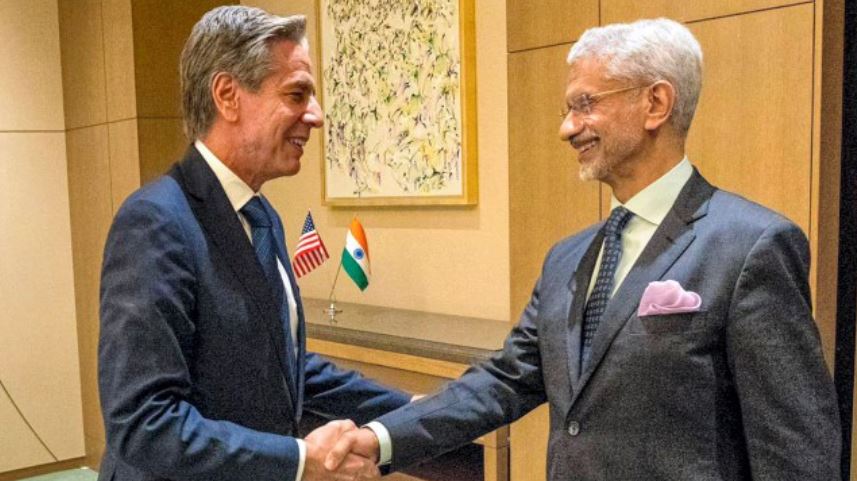Diplomatic Power Play: Jaishankar and Blinken Address Tensions
External Affairs Minister S. Jaishankar and U.S. Secretary of State Antony Blinken recently convened in Tokyo for a significant discussion amid growing strains in India-U.S. relations. This meeting, held against the backdrop of Prime Minister Narendra Modi’s recent visit to Russia and an alleged assassination plot in New York, highlights the complex dynamics influencing bilateral ties.
The occasion for their talks was the Quad summit, an assembly of foreign ministers from the Quadrilateral Security Dialogue (Quad), which also includes Australia and Japan. Despite the focus on this multilateral forum, the conversation between Jaishankar and Blinken delved into critical bilateral issues that have recently strained relations between the two nations.
India-US Relations: Key Issues on the Agenda
The timing of Modi’s visit to Russia, occurring just as the NATO summit convened in Washington, has been a point of contention. Western leaders, including U.S. officials, viewed the visit as a provocative act. U.S. Assistant Secretary of State for South and Central Asia Donald Lu expressed disappointment, citing the symbolic and strategic implications of Modi’s visit during such a pivotal time for NATO. Lu’s comments highlighted a perceived affront to U.S. diplomatic sensibilities and its strategic alliances.
In response, New Delhi has defended its diplomatic autonomy, emphasizing that in a multipolar world, nations must respect each other’s choices. India’s Ministry of External Affairs has rebuffed criticism from Washington, asserting that Modi’s visit to Moscow was within India’s sovereign right to conduct foreign relations as it sees fit.
Regional Conflicts and Diplomatic Dynamics
The discussions between Jaishankar and Blinken also covered regional conflicts, notably the ongoing Russia-Ukraine war and the situation in Gaza. These topics are significant as they reflect broader geopolitical tensions and the role of major powers like India and the U.S. in addressing global crises.
The Russia-Ukraine conflict remains a critical point of international contention, with various countries, including India, navigating their diplomatic stances amidst the ongoing war. Similarly, the Gaza situation continues to provoke global debate, impacting international relations and alliances.
The Alleged Plot and Diplomatic Fallout
Another significant issue in the India-U.S. diplomatic dialogue is the alleged murder-for-hire plot targeting Gurupatwant Singh Pannun, a Sikh extremist wanted in India. The plot, which was purportedly foiled by U.S. authorities, involved an Indian national, Nikhil Gupta, who was arrested in the Czech Republic and extradited to the U.S. last month.
The U.S. federal prosecutors’ charges against Gupta have further complicated India-U.S. relations. India’s response to these allegations includes the appointment of a high-level inquiry committee to investigate the claims. This development underscores the tense atmosphere surrounding the bilateral relationship and highlights the need for transparent and collaborative approaches to resolving such issues.
In April, The Washington Post’s naming of an Indian official in connection with the plot added another layer of complexity to the diplomatic engagement between the two nations. The Indian government has expressed its intention to address these concerns constructively while defending its stance against external accusations.
Moving Forward: Strategic Cooperation and Challenges
As Jaishankar and Blinken continue their discussions, the focus remains on navigating these diplomatic challenges while seeking to enhance strategic cooperation. The ongoing dialogue reflects both nations’ commitment to addressing issues of mutual concern, despite the tensions that have surfaced.
The Tokyo meeting serves as a reminder of the intricate nature of international relations and the need for nuanced diplomacy in resolving conflicts and fostering cooperation. The outcome of these discussions will likely shape the future trajectory of India-U.S. relations, influencing both regional stability and global strategic dynamics.
Summary:
The meeting between External Affairs Minister S. Jaishankar and U.S. Secretary of State Antony Blinken in Tokyo highlights ongoing strains in India-U.S. relations, including issues related to Prime Minister Modi’s visit to Russia and an alleged assassination plot. The discussions also touched on regional conflicts, emphasizing the need for careful diplomacy in addressing these complex issues.
Table of Key Learning Points:
| Key Learning Point | Details |
|---|---|
| Diplomatic Tensions | Modi’s Russia visit and the assassination plot strain relations. |
| Regional Conflicts | Discussions included the Russia-Ukraine war and Gaza situation. |
| Alleged Plot and Investigation | U.S. charges against an Indian national complicate diplomacy. |
| Strategic Cooperation | Focus on enhancing bilateral ties amidst ongoing challenges. |
Soumya Smruti Sahoo is a seasoned journalist with extensive experience in both international and Indian news writing. With a sharp analytical mind and a dedication to uncovering the truth, Soumya has built a reputation for delivering in-depth, well-researched articles that provide readers with a clear understanding of complex global and domestic issues. Her work reflects a deep commitment to journalistic integrity, making her a trusted source for accurate and insightful news coverage.



